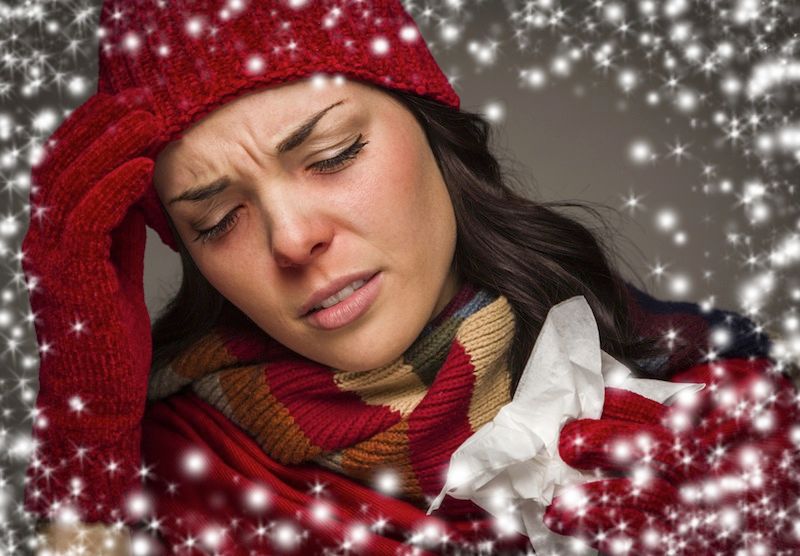5 Tips to Avoid Illness This Holiday

You may think that coming down with a cold or the flu this time of year is inevitable, but there are some things you can do to reduce your risk of illness, experts say.
Here are five tips to prevent the sniffles this holiday season:
Don't touch your face
Although many of us touch our faces without thinking about it, this can spread disease.
"Anytime you touch any of your mucus membranes — your eyes, nose and mouth — these are ways to transmit infection," said Dr. Michael Langan, a primary care physician and assistant professor at The Ohio State University Wexner Medical Center.
If you can avoid touching your face, this may be beneficial, Langan said.
Previous studies have suggested that people contaminate their hands with germs more often than they wash their hands.
Sign up for the Live Science daily newsletter now
Get the world’s most fascinating discoveries delivered straight to your inbox.
Wash your hands
Washing your hands often with soap and water can prevent the spread of germs to yourself and others, according to the Centers for Disease Control and Prevention.
"Nothing is a better substitute for being vigilant about hand-washing," Langan said.
The CDC recommends scrubbing your hands for 20 seconds — about the length of time it takes to sing the "Happy Birthday" song twice.
If you're on the go and can't get to a sink, then alcohol-based hand sanitizers are an adequate way to cleanse your hands, Langan said. But if your hands are visibly soiled, you should wash them, he said.
Get a flu shot
A yearly flu shot is the best way to protect yourself against the flu, according to the CDC. The best time to get a flu shot is in the early fall, before flu activity starts to rise, but it's still not too late to get flu shot this season, the CDC says.
It takes about two weeks for a person to build up immunity against the flu after they get their shot.
You cannot get the flu from a flu shot. The flu vaccine injection contains no live virus, only viral proteins.
Langan noted that flu shots do not protect against colds, so hand-washing and other protective measures are still important.
Avoid sick people
Contact with sick people is sometimes unavoidable, but if you know someone who has the flu or another contagious illness, you should try to limit your contact with them as much as possible, Langan said. This is especially important for people with health conditions that may increase complications from the flu, such as heart disease, liver disease and diabetes, or being pregnant, Langan said.
The Food and Drug Administration says that parents should keep infants away from crowds for the first few months of life to limit their exposure to infected people.
Stay active and practice healthy habits
A healthy lifestyle, including regular exercise, eating healthfully and getting enough sleep, is good for your general well-being, Langan said, and may help keep you from falling under the weather.
The FDA notes that smokers are more prone to respiratory illnesses, and complications from these illnesses, than nonsmokers.
In terms of taking supplements, such as vitamin C, vitamin E and zinc, Langan said there is not much evidence that such herbal remedies work to prevent colds, or reduce the length of cold symptoms.
"There's not a lot of harm in using those products, but there's also not a lot of proven benefit," Langan said.
Follow Rachael Rettner @RachaelRettner. Follow LiveScience @livescience, Facebook & Google+. Original article on LiveScience.

Rachael is a Live Science contributor, and was a former channel editor and senior writer for Live Science between 2010 and 2022. She has a master's degree in journalism from New York University's Science, Health and Environmental Reporting Program. She also holds a B.S. in molecular biology and an M.S. in biology from the University of California, San Diego. Her work has appeared in Scienceline, The Washington Post and Scientific American.









